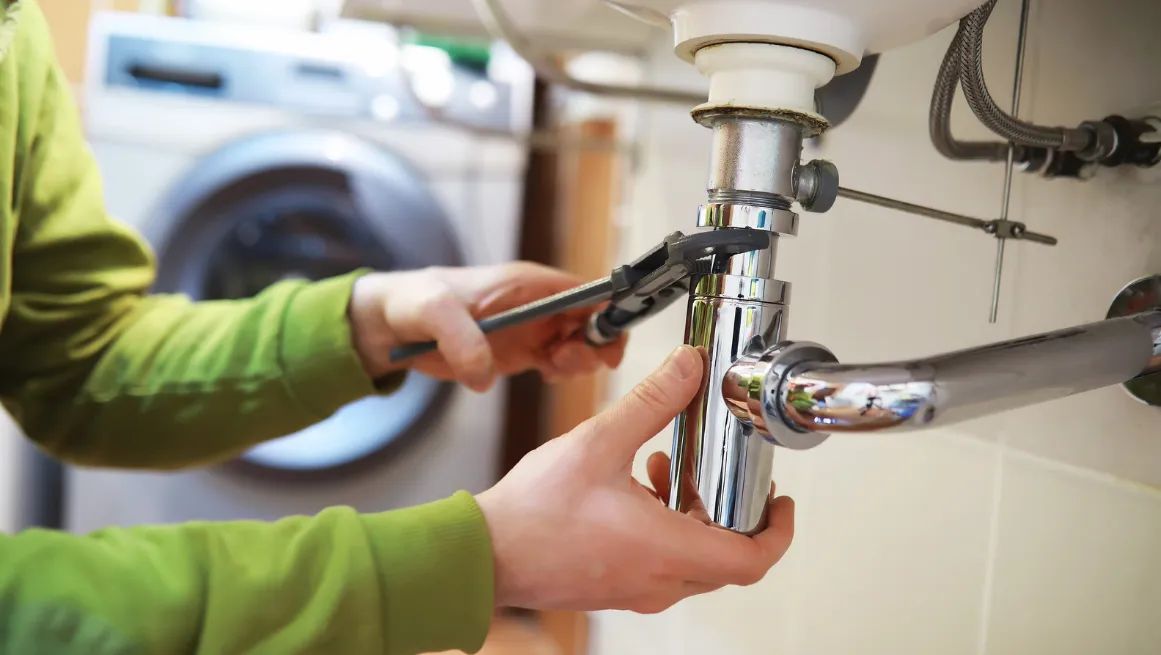
The Essential Home Plumbing Maintenance Checklist
April 8, 2024
by cecil a. palmer, guest contributor
Regular plumbing maintenance is not just a matter of function—it's a cornerstone of home safety and efficiency. This checklist is designed to arm you with preventative measures against common issues, ultimately creating a more harmonious and secure living environment. By following these tailored tips, you'll enhance the comfort of your dwelling, ward off unnecessary expenditures, and uphold the seamless operation of your home's vital water systems.
Daily Plumbing Practices
Daily plumbing practices are a powerful component of a proactive home maintenance routine, promoting longevity and reliability in your family's water usage and waste management.
1. Conserve Water
Saving Water should be as habitual as the daily brushing of our teeth. By turning off the tap when not in direct use, fixing dripping faucets promptly, and opting for quick showers, we can significantly reduce our water footprint and utility costs.
2. Dispose of Waste Properly
The only things that should go down the toilet are human waste and toilet paper; even so-called 'flushable' wipes can clog pipes. In the kitchen, grease, coffee grounds, and fibrous food scraps should be kept out of drains to avoid creating stubborn blockages that are challenging to clear without professional help.
3. Check for Leaks
Daily vigilance in spotting leaks can prevent major plumbing failures. Look for signs of moisture or small drips under pipes, sinks, and around the base of toilets. Tackling these issues swiftly can forestall considerable water loss and potential damage to the home's structure or foundation.
Weekly Plumbing Checks
Weekly plumbing checks serve as an important second line of defense in your home maintenance battle, helping catch potential issues early and keeping your plumbing system in top-notch shape.
1. Inspect Toilets
Examine your toilets for clear signs of problems, such as leaks or constant running water. A smooth flush is key to optimal toilet performance; if it's not up to par, you might need to adjust the flapper or float, or call a plumber if adjustments don't fix the issue.
2. Clear Drains and Disposals
Clear your drains and garbage disposals by flushing them with hot Water weekly, helping eliminate accumulated debris and grease. Garbage disposals can be cleaned safely by running them with a combination of ice cubes and salt or baking soda and vinegar, followed by hot water.
3. Check Water Pressure
Be mindful of the water pressure in showers and sinks, ensuring it's not too high. Stress from high pressure can eventually lead to leaks in your plumbing system. If pressure seems unusually strong or weak, it could indicate a problem requiring professional attention.
Monthly Plumbing To-Dos
Plumbing care must extend beyond the weekly checks and daily habits. Implementing a monthly routine ensures better longevity of your systems and prevents major issues.
1. Water Heater Maintenance
Ensure the longevity and performance of your water heater by performing a few checks each month. Start by checking the temperature settings on the device. The ideal temperature is usually set at 120 degrees Fahrenheit. This reduces the risk of accidental burns and saves on energy costs. Also, be vigilant about any signs of leakage around the heater base. If moisture or pooling Water is detected, seek professional help, as it usually indicates a serious problem.
2. Deep Clean Faucets and Showerheads
Hard Water can lead to mineral buildup in your faucets and showerheads, disrupting the water flow. Removing these parts monthly and soaking them in a vinegar solution for at least an hour or longer for heavy buildup is beneficial. This descaling process helps dissolve mineral deposits, ensuring your fixtures maintain an optimal flow rate. After soaking, thoroughly rinse and reassemble them.
3. Check Outdoor Faucets and Sprinklers
Monthly checks, especially in varying seasons, ensure they operate correctly. Activate the faucets and sprinkler systems, observing for leaks, unusual water dispersal patterns, or damage to the fixtures.
Annual Plumbing Inspection
An annual plumbing inspection is vital for identifying potential issues before they become costly problems, aiding in maintaining the overall health of your home’s plumbing system.
1. Professional Inspection
Engaging a professional plumber for an annual inspection can uncover hidden issues like small leaks or corrosion that homeowners may not notice. Their expertise ensures your plumbing system operates efficiently, safeguarding against unexpected breakdowns.
2. Sewer Line Check
Annual sewer line inspections are crucial, particularly for older homes or properties with large trees, as root intrusion and pipe degradation can lead to major blockages or sewer line breaks, often requiring expensive repairs.
3. Water Softener
Homes with hard water benefit greatly from a water softener system. Checking and replenishing the salt supply in your system is vital for its continuous and efficient operation. Annual maintenance ensures it effectively removes minerals from your Water, protecting your plumbing fixtures and appliances.
Guest Writer
Cecil A. Palmer is a blog contributor for Showtime Plumbing LLC, focusing her sharp wit on your worst plumbing nightmares. She deftly pens articles aimed at keeping your pipes in check, sparing you from the chaos of unwelcome waterworks. Through her work with SpringHive Digital Marketing Agency, Cecil crafts compelling copy for various Plumbing Service clients, blending technical savvy with relatable anecdotes. Nestled in the heart of Tennessee with her husband and two little ones, she unwinds by exploring the great outdoors and immersing herself in the world of gardening and amateur photography.
Guest writers are an important part of Simply Family Magazine. Do you want to write for us? Click here!





